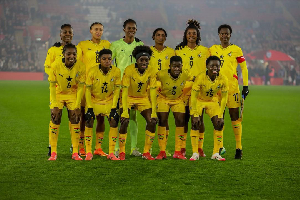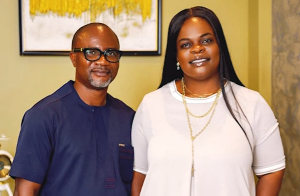Editor-in-Chief of the New Crusading Guide Newspaper, Abdul Malik Kweku Baako has chastised the ruling New Patriotic Party (NPP) for failing to communicate effectively to Ghanaians.
Describing the Akufo-Addo-led government as being terrible when it comes to communication, the veteran journalist said most issues which could have been resolved and clarified easily failed because of the poor manner they address their issues.
According to him, due to their inability to speak well to the general public on pressing issues, a vacuum has been created where people get misled easily by the opposition parties, making it difficult for Ghanaians to understand their version of the story.
“I’ll be dishonest and insincere if I fail to recognise that this country and especially this administration has not had challenges with communication, I would be dishonest. Whether it is due to incompetence or it is due to oversight, either way it’s a communication deficit, head or tail which creates problems. But let’s examine them specifically in terms of the specifics.”
His comment follows, when the Minister of Education, Dr. Mathew Opoku Prempeh contradicted himself in regards to the implementation of the Comprehensive Sexuality Education for basic schools in the country.
Napo in January 2019, admitted that the subject of sexuality education has become a very important matter particularly for the youth and due to the free flow of information and media pluralism, it is important to reform the educational system by providing accurate information on sexuality.
He maintained that “We in Ghana see it as imperative that sexuality education should be part of the curricula that we will launch in September this year from Kindergarten (KG) to Senior High School (SHS),”
But at a press conference recently following the backlash and uproar received from the public, the Minister denied the new curriculum includes the CSE.
Kweku Baako reacting to the Minister’s contradiction said government handled the issue wrongly and should have boldly come out to explain details of the CSE by bringing out factual, truthful information to dispel rumours but they failed terribly in doing so.
“For instance, you played a certain video of the Minister of Education; one was supposed to be in February and one was the recent one and then apparently you see a contradiction. You see my first instinct was that CSE whether we like it or not, the way I’ve seen it properly conceptualised it’s here, has been here already.”
“But I’m saying, come out say yes; CSE, this is what it is and indeed we’re dealing with it but we’re dealing with it within our peculiar circumstances with the right not to allow these things to come in. So even in training our teachers, this is what we’re doing,” he added.
The Ghana Education Service (GES) was supposed to from next term, begin sex education into the curriculum of basic schools to equip schoolchildren to recognise and experience their sexuality.
At age six, Primary One pupils will be introduced to values and societal norms and how to interact with the different sexes and groups.
As the pupils graduate to the upper primary, they will be made to study different modules of sexuality that include relationship, friendship, dating and courtship.
The guideline module for 11-year-olds in Primary Six includes fertility, pregnancy-related issues, childbirth and respecting gender differences.
This is part of the Guidelines for the Comprehensive Sexuality Education (CSE) that is expected to integrate gender, human values and sexual and reproductive health rights perspectives into sexuality education in Ghana.
However, there has been massive public castigation from several sections of Ghanaians, Civil Society Groups and religious bodies about the introduction of the CSE, with majority of the population speaking against its implementation.
Some expressed fears about a subtle agenda through the syllabus to promote Lesbians, Gays, Bisexual and Transgender (LGBT) plan.
General News of Friday, 4 October 2019
Source: www.ghanaweb.com













